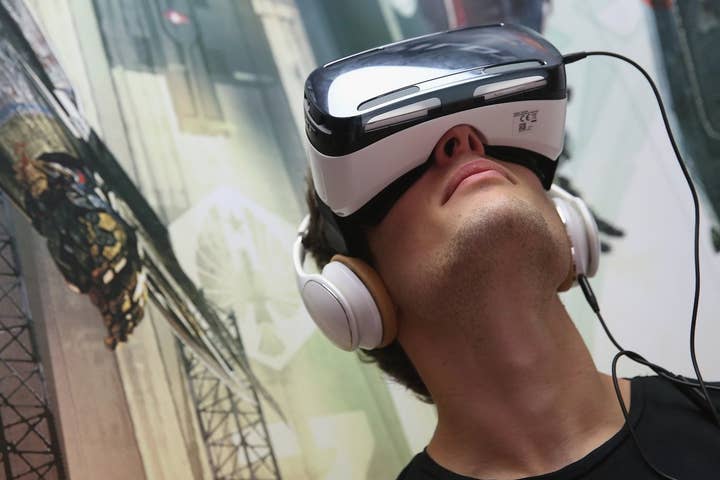VR needs a killer app, not games, to become mainstream
Samsung's Nick DiCarlo says games won't bring it to the masses
It won't be gaming that breaks virtual reality out of the niche and into the mainstream, says Samsung's VP of VR Nick DiCarlo, but a native app that couldn't exist without the platform.
Speaking to The Verge ahead of tomorrow's Samsung developer conference, DiCarlo said that it's going to take something along the lines of Twitter or Instagram to make VR a concept for everyone rather than a niche luxury.
"For virtual reality to really cross into the mainstream, it's gotta be more than just really awesome, killer games," he said. "What is the most important use case in VR? We haven't figured it out yet, but there are lots of ideas. What is the Twitter or Instagram of VR? By that, I don't mean having tweets in VR or having filtered photos in VR - I mean that it's native to that platform, it's born of that platform and would not have existed without that platform."
Samsung is due to deliver its own VR solution, the Galaxy Gear VR, this year - which should put it ahead of both Oculus and Sony in the race for public affections. That aim will no doubt be assisted by the fact that it uses the Galaxy 4 smartphone as its base technology, lowering consumer entry barriers considerably. Nonetheless, he freely admits that much of the pioneering work in VR quality has been done by Palmer Luckey's team at Oculus.
"It's fairly easy to put a phone into a pair of goggles, which gives you a good basic idea of what virtual reality can be, but what Oculus has really delivered is a really high quality VR experience," he said, referencing the Rift's low latency. "It means if you turn your head, the light that you expect to see is coming off the screen."
Many developers are already working on VR games for the Samsung hardware, with Imangi producing a Temple Run title for the device and the Room developer Fireproof confirming that it's working on a game, too. The nature of DiCarlo's 'killer app' remains up for grabs, however, with potential candidates ranging from Harmonix's 'relaxation simulator' to virtual tourism, immersive cinema, face-to-face conferencing and, inevitably, adult entertainment.









